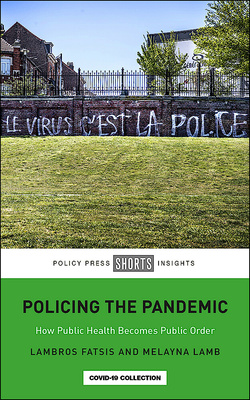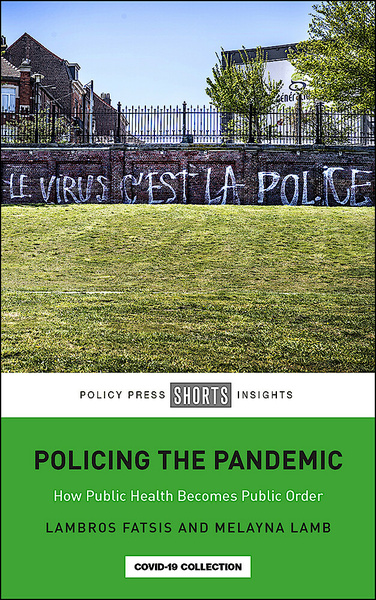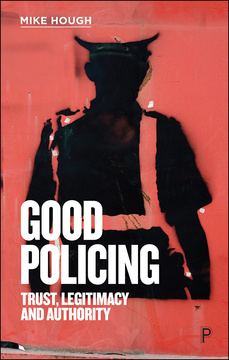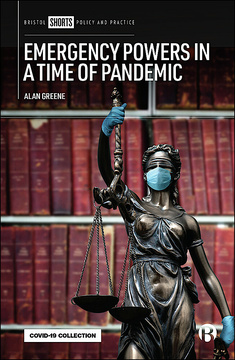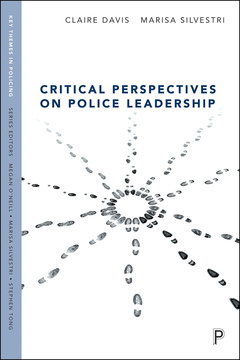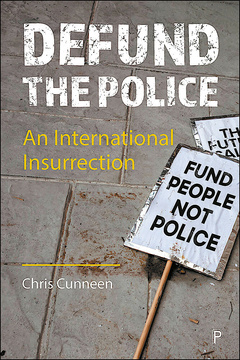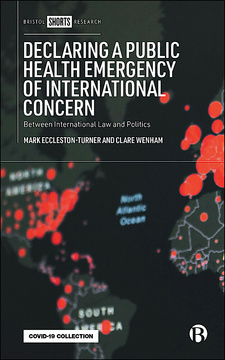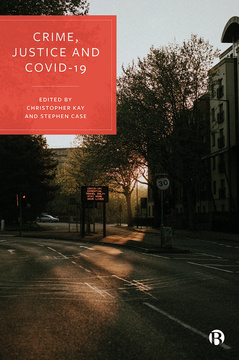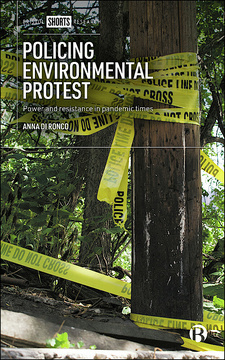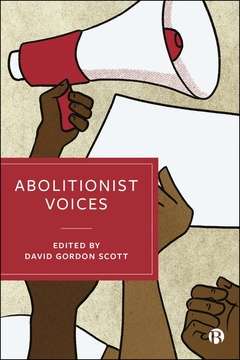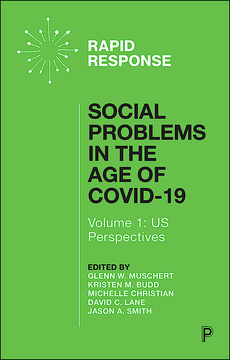Published
Dec 7, 2021Page count
148 pagesISBN
978-1447361077Dimensions
203 x 127 mmImprint
Policy PressPublished
Dec 7, 2021Page count
148 pagesISBN
978-1447361084Imprint
Policy PressPublished
Dec 7, 2021Page count
148 pagesISBN
978-1447361084Imprint
Policy PressPODCAST: What is policing for?
The COVID-19 pandemic has highlighted the inadequacies of the state’s response to public health and public order issues through deeply flawed legislation.
Written in the context of the #BlackLivesMatter protests, this book explores why law enforcement responses to a public health emergency are prioritised over welfare provision and what this tells us about the state’s criminal justice institutions.
Informing scholarly, civic and activist thinking on the political nature of policing, it reveals how increasing police powers disproportionately affects Black people and suggests alternative ways of designing public safety beyond a law enforcement context.
“Succinct, accessible, and informative for students and professionals alike, ‘Policing the Pandemic is key for imagining an abolitionist present and future that promotes care, community, and safety disentangled from policing’s security and order” Crime Media Culture
“Makes a compelling case for a critical assessment of what the COVID-19 pandemic can tell us about policing, health and governance all of the time. Lively, topical and precisely what we need.” Peter Squires, University of Brighton
"Offers us an urgent, rigorous and visionary guide to a world in which the response to ill health is state violence. The authors provide a thoroughly researched and compelling case for alternatives to policing, not just in relation to disease and infection, but in all areas of public life." Adam Elliot-Cooper, Queen Mary University of London
"This thoughtful book is deeply sceptical about the ways the resulting emergency has been used to transform our state and the way we are ruled. The authors suggest radical responses to the consolidation of austere and authoritarian patterns in our declining political culture.” Paul Gilroy, University College London
“Shows that when political leaders use police to paper over austerity and inequality, the police often view the public as a threat to be neutralised, rather than protected. This crisis demands that we build a world that provides real care, not more police.” Alex S. Vitale, Brooklyn College
Lambros Fatsis is a Senior Lecturer in Criminology at City, University of London. His research fuses Cultural Criminology with Black radical thought, focusing on police racism and the criminalisation of Black music subcultures. His co-authored book with Mark Carrigan, The Public and Their Platforms Public Sociology in an Era of Social Media is published by Bristol University Press.
Melayna Lamb is a Lecturer at the University of Law, London. Her research interests span the fields and intersections of political philosophy, critical theory and Black radical thought. Her monograph, A Philosophical History of Police Power is forthcoming with Bloomsbury.
Introduction
1. Policing 'the public' as a virus
2. The order of public health
3. Safety without police: an abolitionist provocation







